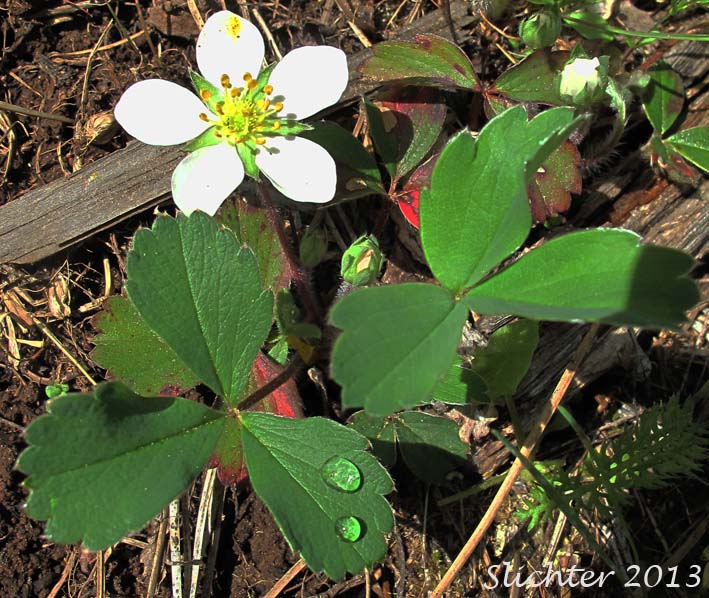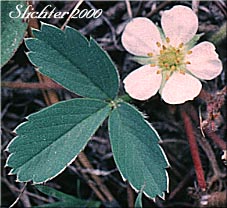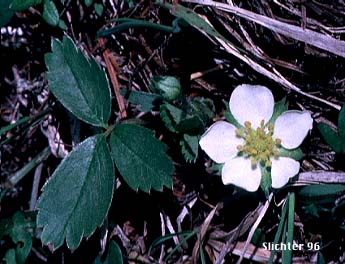
 Photo
at right of broadpetal strawberry from Little Crater within Newberry Crater National
Volcanic Monument.....July 13, 1994.
Photo
at right of broadpetal strawberry from Little Crater within Newberry Crater National
Volcanic Monument.....July 13, 1994.
Broadpetal strawberry is a perennial with attractive flowers and tasty fruits. It is a deciduous, perennial which is strongly stoloniferous. The basal leaves are long petiolate (up to 15 cm) and have 3 leaflets which are bluish-green in color. The leaflets are obovate, cuneate-obovate, or elliptic-obovate in shape, from 2-7 cm long, and fairly thick. The veins are neither prominent nor bulged between the veins. The leaflet margins are coarsely toothed, especially towards the tip.
The inflorescence is a 2-15 flowered cyme, the flowers elevated slightly above the leaves. Individual flowers are showy, white (occasionally pink), with 5 petals. The petals are 6-13 mm long and are broadly obovate-orbicular in shape. The fruit are globose red berries which are red in color and very sweet. They are up to 1 cm wide.
The fruits are highly prized, and may be eaten raw or cooked in cobblers or jams. A tea made of the leaves is high in Vitamin C. Various small animals eat the berries.
Broadpetal strawberry is found in open woods to sandy or gravelly meadows and stream banks in the lowlands and lower mountains.
Broadpetal strawberry is found across much of North America, and may be seen from Alaska south to California and east through Colorado to the Atlantic coast, where it occurs as far south as Georgia.
In the Columbia River Gorge it may be found between the elevations of 100'-4200' from near Cape Horn east to approximately Lyle, WA.
